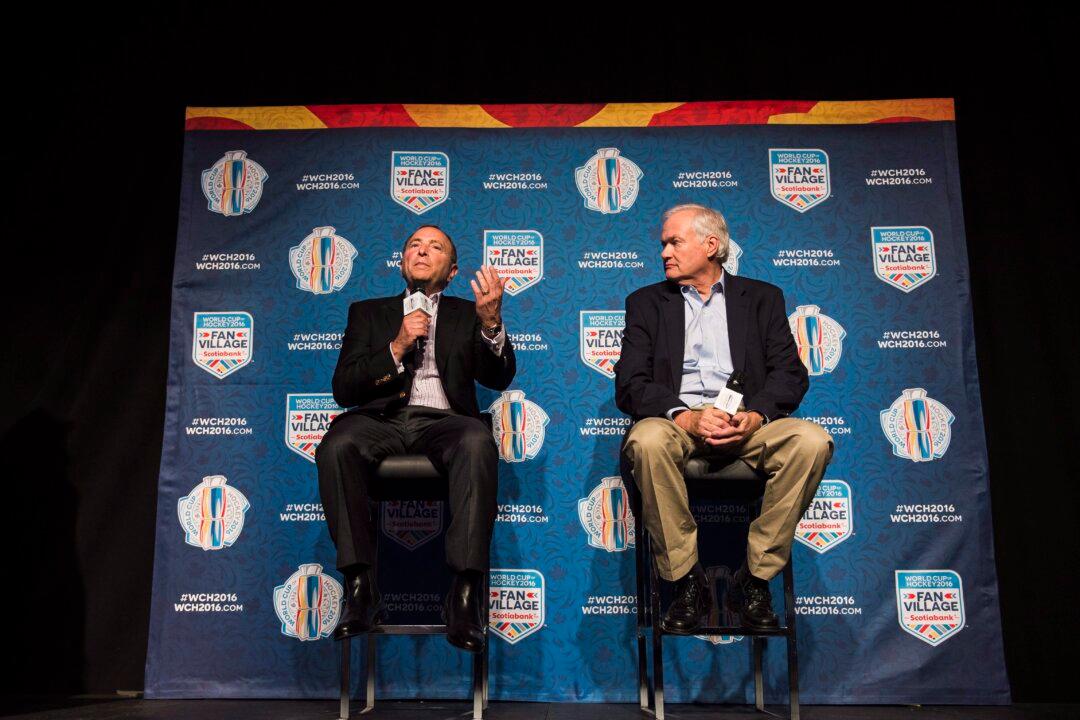TORONTO—The World Cup of Hockey is showcasing a fantastic product on the ice, but what doesn’t get enough attention are the game’s social inclusion contributions.
The first-ever Hockey Sense Summit, held at the Hockey Hall of Fame on Sept. 19, focused on the positive impact hockey has made and will continue to make on social issues such as diversity and inclusion.
The World Cup itself has grown out of improved cooperation between the NHL and its Players’ Association. NHL commissioner Gary Bettman and NHLPA executive director Don Fehr reiterated that sport is a powerful means for sending a message.
“We believe that hockey can bring people together and we’re a vivid example of that in practice,” Bettman said, referring to the two teams of North America and Europe—a new wrinkle for the tournament, but one that is looking like a stroke of genius.





